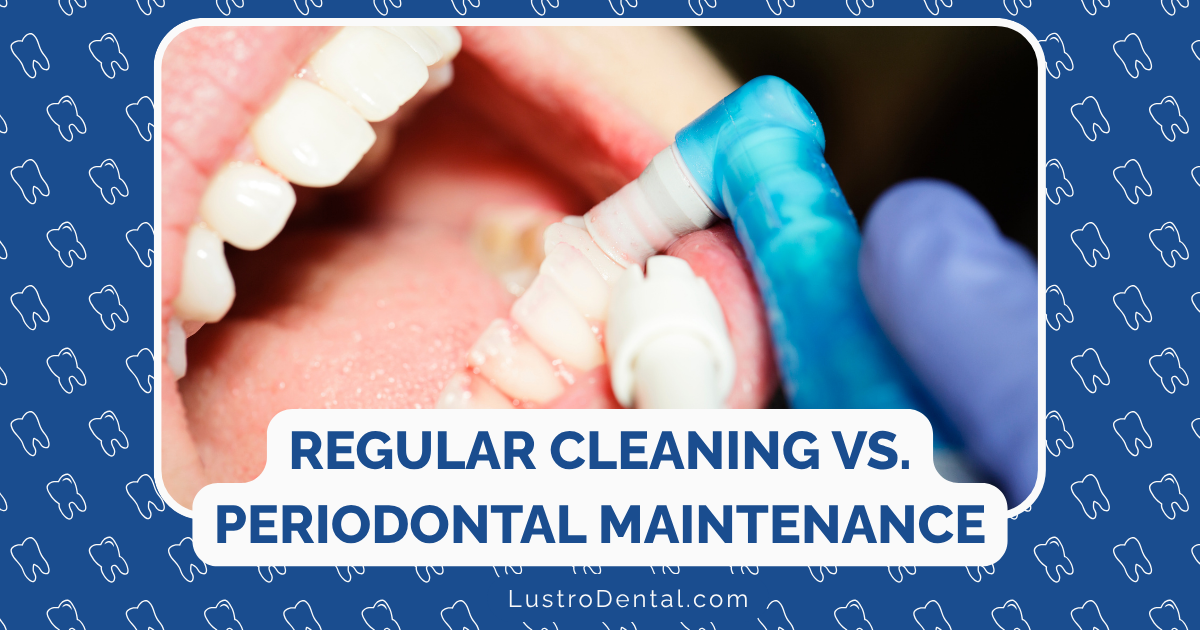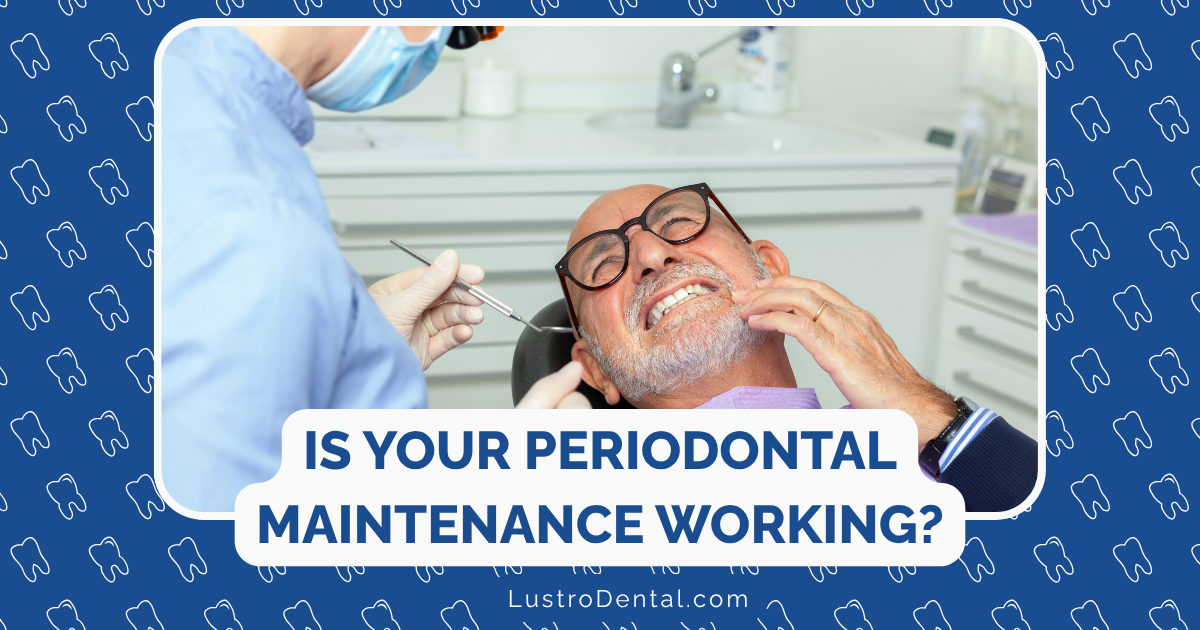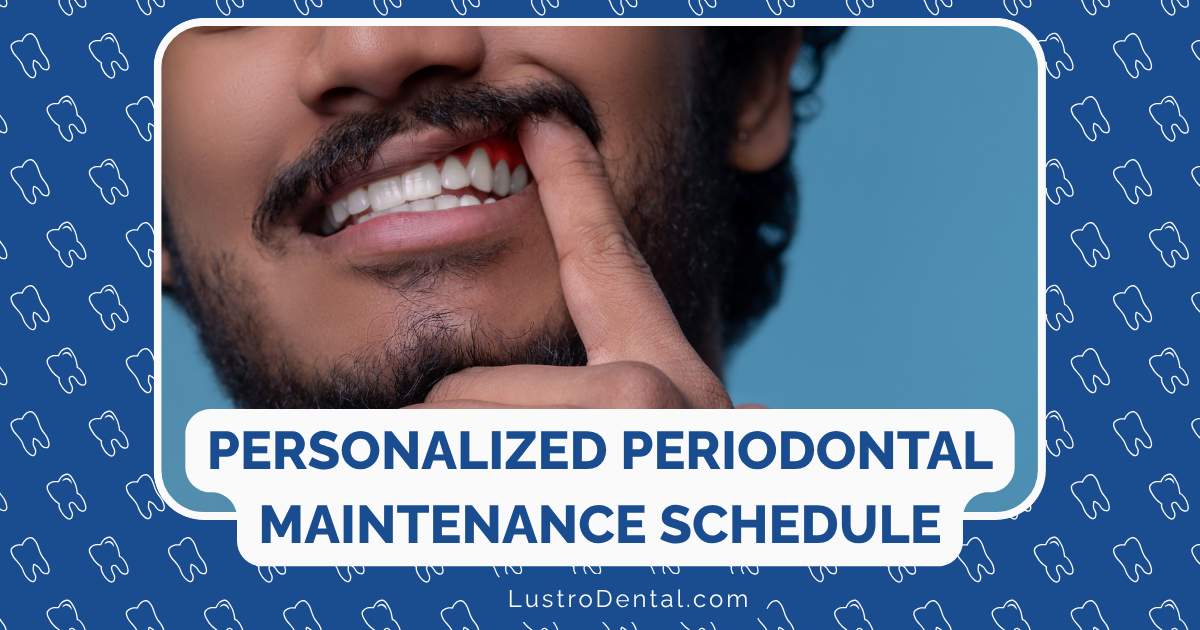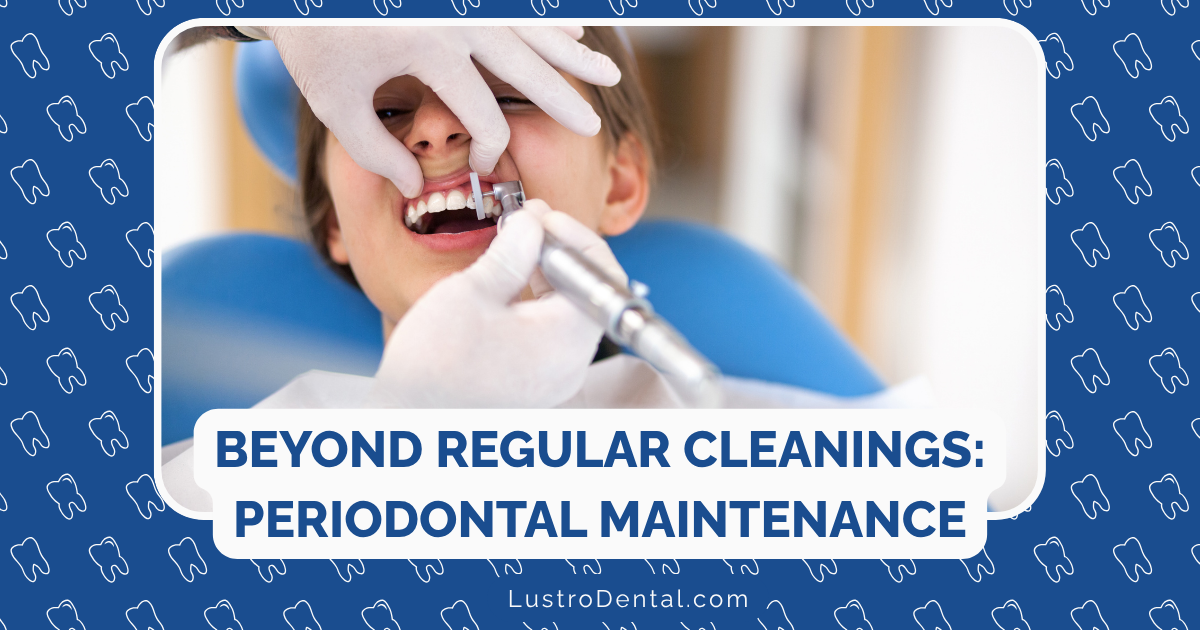The Link Between Periodontitis and Chronic Diseases: Why Treatment Is Critical
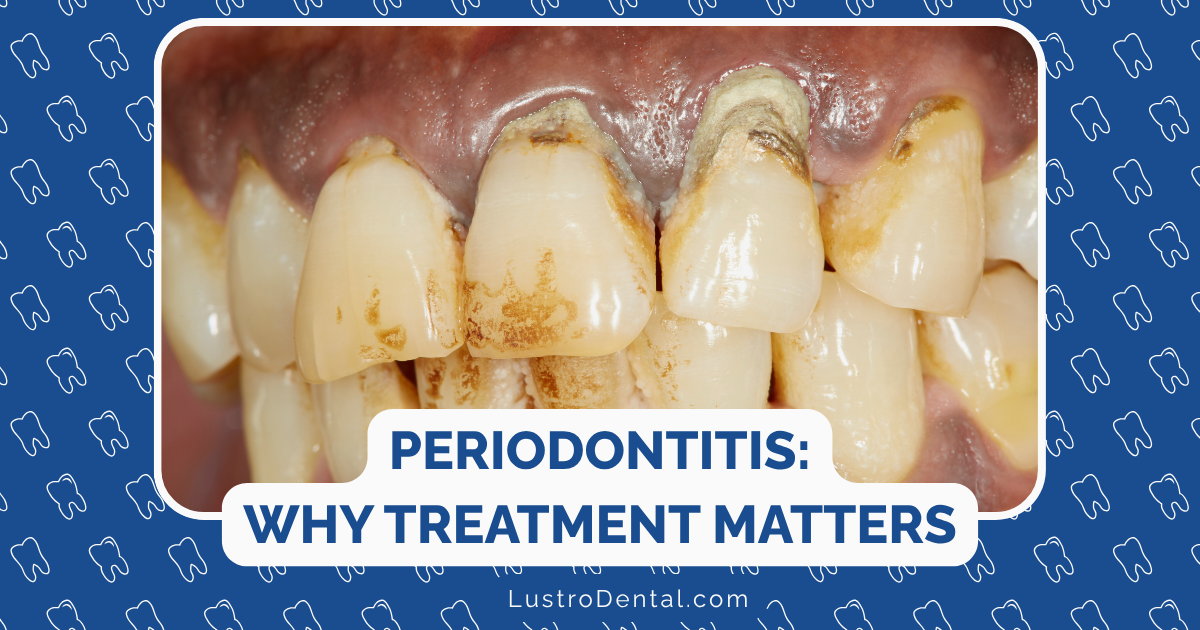
When most people think about gum disease, they envision bleeding gums, bad breath, and eventually, tooth loss. While these local consequences are certainly concerning, mounting evidence suggests that the impact of periodontitis extends far beyond your mouth. In fact, this common inflammatory condition may be silently contributing to or exacerbating serious chronic diseases throughout your body.
As someone dedicated to advancing dental health education, I’ve witnessed a paradigm shift in how we understand the relationship between oral health and overall wellness. The mouth is not an isolated system—it’s intimately connected to your entire body through complex inflammatory pathways and direct bacterial spread.
This comprehensive guide explores the critical connections between periodontitis and systemic diseases, explaining why treating gum disease isn’t just about saving your teeth—it could be saving your life.
Understanding Periodontitis: More Than Just a Dental Problem
Before diving into the systemic connections, let’s clarify what periodontitis actually is. Periodontitis is an advanced form of gum disease characterized by inflammation of the gums and supporting structures of the teeth. It begins with gingivitis (gum inflammation) and, if left untreated, progresses to destroy the periodontal ligaments and alveolar bone that support your teeth.
The condition affects nearly half of adults over 30 in the United States, with severe periodontitis affecting approximately 9% of the population. What makes periodontitis particularly concerning from a systemic health perspective is its chronic inflammatory nature and the potential for oral bacteria to enter the bloodstream.
Dr. Sarah Chen, Professor of Periodontology at Harvard School of Dental Medicine, explains: “Periodontitis creates a perfect storm of health risks. You have chronic inflammation, a disrupted oral microbiome, and a compromised barrier that allows bacteria and inflammatory mediators to enter the circulation. This combination can have far-reaching effects throughout the body.”
The Mouth-Body Connection: How Periodontitis Affects Systemic Health
The link between periodontitis and systemic diseases operates through several biological mechanisms:
1. Systemic Inflammation
Periodontitis triggers an inflammatory response that isn’t confined to your mouth. Pro-inflammatory cytokines and other mediators enter your bloodstream, contributing to systemic inflammation—a known driver of numerous chronic diseases.
2. Direct Bacterial Spread
Oral bacteria associated with periodontitis, particularly Porphyromonas gingivalis, can enter the bloodstream during normal activities like chewing and brushing. These bacteria have been detected in distant tissues and organs, including the heart, brain, and arterial plaques.
3. Immune System Dysregulation
Chronic exposure to periodontal pathogens can alter immune responses throughout the body, potentially contributing to autoimmune and inflammatory conditions.
4. Shared Risk Factors
Periodontitis shares common risk factors with many chronic diseases, including smoking, poor diet, and stress, which may partially explain their frequent co-occurrence.
Periodontitis and Cardiovascular Disease: A Deadly Connection
The relationship between periodontitis and cardiovascular disease (CVD) is one of the most well-established oral-systemic connections. According to a meta-analysis published in the Journal of Clinical Periodontology, individuals with moderate to severe periodontitis have approximately three times the risk of developing coronary heart disease compared to those without periodontitis.
The Heart of the Matter: Specific Cardiovascular Risks
Coronary Artery Disease
Multiple studies have found that periodontal bacteria, particularly P. gingivalis, can be detected in atherosclerotic plaques. These bacteria may contribute to plaque formation and instability, increasing the risk of heart attacks.
Atrial Fibrillation
A groundbreaking 2025 study published in Science Daily revealed that P. gingivalis can infiltrate heart tissue, leading to scarring and increasing the risk of atrial fibrillation (AFib)—the most common type of irregular heartbeat. The research found that:
- Periodontitis was linked to a 30% higher risk of developing AFib
- Infected mice showed a 30% AFib inducibility rate compared to just 5% in uninfected controls
- P. gingivalis was found in the heart tissue of 68 AFib patients, with higher amounts in those with severe gum disease
Stroke
Research indicates that periodontitis increases stroke risk by approximately 1.5 to 2.5 times. The inflammatory burden and potential for bacteria-induced blood clots are believed to be contributing factors.
The Impact of Periodontal Treatment on Cardiovascular Health
Perhaps the most compelling evidence for the periodontitis-CVD connection comes from intervention studies showing that periodontal treatment can improve cardiovascular markers:
- Periodontal therapy significantly reduces levels of C-reactive protein (CRP), a key marker of inflammation associated with cardiovascular risk
- Treatment improves endothelial function, which is critical for cardiovascular health
- Some studies suggest improvements in lipid profiles following periodontal treatment
Dr. Michael Rodriguez, cardiologist at Mayo Clinic, notes: “We’re increasingly recommending periodontal evaluation for our cardiac patients. The evidence suggests that addressing periodontal inflammation may be an important adjunctive approach to reducing overall cardiovascular risk.”
Diabetes and Periodontitis: A Two-Way Street
The relationship between diabetes and periodontitis is bidirectional, meaning each condition can influence the other. This connection is so well-established that periodontitis is often referred to as the “sixth complication” of diabetes.
How Diabetes Affects Periodontal Health
Diabetes creates an environment that promotes periodontitis through:
- Impaired immune function and wound healing
- Microvascular changes that reduce blood flow to the gums
- Altered collagen metabolism
- Elevated glucose levels in gingival fluid that favor pathogenic bacteria
How Periodontitis Affects Diabetes
Equally important, periodontitis can make diabetes more difficult to control:
- Systemic inflammation from periodontitis can increase insulin resistance
- Periodontal infection can elevate blood sugar levels
- The inflammatory burden can worsen diabetic complications
According to a 2025 study published in Nature, there is a moderate but significant association between periodontitis and diabetes (Cramer’s V = 0.14), highlighting the interconnected nature of these conditions.
The Benefits of Periodontal Treatment for Diabetic Patients
Multiple clinical trials have demonstrated that treating periodontitis can improve glycemic control in people with diabetes:
- A landmark study in the Journal of Periodontology found that intensive periodontal therapy reduced HbA1c (a measure of long-term blood sugar control) by approximately 0.4% after three months—a reduction comparable to adding a second medication to a diabetic regimen
- Improvements in glycemic control can persist for at least 6-12 months following periodontal treatment
- Periodontal maintenance therapy helps sustain these benefits over time
Dr. Lisa Johnson, endocrinologist and researcher at the University of California, emphasizes: “Periodontal care should be considered an essential component of diabetes management. The improvements in glycemic control we see following periodontal treatment can translate to meaningful reductions in the risk of diabetic complications.”
Alzheimer’s Disease: The Emerging Brain Connection
One of the most concerning recent discoveries is the potential link between periodontitis and Alzheimer’s disease (AD). Research in this area has accelerated dramatically in the past five years, revealing compelling connections.
The Bacterial Brain Hypothesis
A systematic literature network analysis published in Science Direct in 2024 examined 328 studies and found a positive correlation between periodontal disease and Alzheimer’s disease. The analysis identified two primary pathways through which periodontitis may contribute to brain inflammation:
- The Inflammatory Cascade: Systemic inflammation from periodontitis may contribute to neuroinflammation and accelerate cognitive decline
- Microbial Involvement: P. gingivalis and its toxic enzymes called gingipains have been detected in the brains of Alzheimer’s patients
Clinical Evidence
The American Academy of Periodontology reports that studies have found a significant connection between bacteria associated with periodontal disease and the progression of Alzheimer’s disease. Specifically:
- P. gingivalis has been found in the brains of Alzheimer’s patients
- Gingipains (toxic enzymes produced by P. gingivalis) have been detected in over 90% of brain samples from Alzheimer’s patients
- Animal studies show that oral infection with P. gingivalis can lead to brain colonization and increased production of amyloid beta—a key component of the plaques characteristic of Alzheimer’s disease
Therapeutic Implications
This emerging connection has led to novel therapeutic approaches:
- Clinical trials are underway testing gingipain inhibitors as potential Alzheimer’s treatments
- Periodontal treatment is being investigated as a preventive measure for those at risk of cognitive decline
- Oral hygiene interventions are being incorporated into dementia care protocols
Dr. James Wong, neurologist and researcher at Johns Hopkins University, notes: “The periodontal-Alzheimer’s connection represents one of the most promising areas of research in neurodegenerative disease. If maintaining oral health can help prevent or slow Alzheimer’s progression, it would be a remarkably simple intervention with enormous public health implications.”
Cancer: The Surprising Link
The connection between periodontitis and cancer is gaining increasing attention. According to a 2024 comprehensive analysis published in Military Medical Research, which examined 57 systematic reviews covering 75 diseases, cancer was the most frequently addressed topic showing significant associations with periodontal disease.
Specific Cancer Risks
The American Academy of Periodontology reports that men with gum disease have:
- 49% increased likelihood of developing kidney cancer
- 54% increased likelihood of developing pancreatic cancer
- 30% increased likelihood of developing blood cancers
The highest risk estimate was found for head and neck cancer, with an odds ratio of 3.17, meaning people with periodontitis have more than three times the risk of developing these cancers compared to those without periodontitis.
Potential Mechanisms
Several mechanisms may explain the periodontitis-cancer connection:
- Chronic inflammation promoting cancer development and progression
- Direct effects of periodontal pathogens on cellular processes
- Immune system dysregulation
- Shared risk factors like smoking
The Importance of Periodontal Care in Cancer Prevention
While more research is needed, maintaining periodontal health may be an important component of cancer prevention strategies, particularly for those with additional risk factors.
Respiratory Diseases: The Breath Connection
The link between periodontitis and respiratory diseases is particularly relevant in the post-COVID era, as more attention focuses on respiratory health.
Pneumonia
The mouth can serve as a reservoir for respiratory pathogens. Research indicates that:
- Periodontal bacteria can be aspirated into the lungs
- These bacteria can cause or complicate pneumonia, particularly in vulnerable populations
- Improving oral hygiene reduces the incidence of pneumonia in hospitalized and nursing home patients
Chronic Obstructive Pulmonary Disease (COPD)
Multiple studies have found associations between periodontitis and COPD:
- Periodontitis is more prevalent in COPD patients
- The severity of periodontitis correlates with COPD severity in some studies
- Both conditions involve chronic inflammation and may share pathophysiological mechanisms
Dr. Robert Chen, pulmonologist at Northwestern Memorial Hospital, explains: “The oral-respiratory connection makes intuitive sense—the mouth is the gateway to the respiratory system. What’s remarkable is how strong the evidence has become showing that oral bacteria and inflammation can significantly impact lung health.”
Pregnancy Complications: Protecting Two Lives
Periodontitis during pregnancy has been associated with adverse outcomes, including:
- Preterm birth
- Low birth weight
- Preeclampsia
- Gestational diabetes
The inflammatory burden from periodontitis may interfere with normal pregnancy progression, highlighting the importance of periodontal care as part of prenatal health.
Why Treatment Is Critical: The Evidence for Intervention
The compelling connections between periodontitis and systemic diseases raise an important question: Can treating periodontitis improve overall health outcomes? The evidence increasingly suggests it can.
Cardiovascular Benefits
- Periodontal treatment reduces systemic inflammation markers associated with cardiovascular risk
- Some studies show improvements in endothelial function following periodontal therapy
- A reduction in major adverse cardiovascular events has been observed in some populations after periodontal intervention
Diabetes Management
- Periodontal treatment improves glycemic control in diabetic patients
- HbA1c reductions of approximately 0.4% have been observed following intensive periodontal therapy
- These improvements can persist for months with proper maintenance
Respiratory Health
- Enhanced oral hygiene reduces the incidence of respiratory infections in high-risk populations
- Periodontal treatment may improve lung function in some COPD patients
- Regular dental care is associated with fewer respiratory-related hospitalizations
Pregnancy Outcomes
- Periodontal treatment during pregnancy may reduce the risk of preterm birth and low birth weight
- Early intervention shows more benefit than later treatment
- Preventive dental care before conception is ideal
The Economic Imperative: Cost Savings Through Periodontal Care
Beyond the health benefits, there’s a compelling economic case for addressing periodontitis as part of chronic disease management. According to a 2025 study in Science Direct:
- Treating periodontitis can lower healthcare costs associated with managing chronic conditions
- Integrating oral health screening into primary care can lead to earlier intervention and better outcomes
- The return on investment for periodontal treatment is particularly high for patients with diabetes and cardiovascular disease
A study by CareQuest Institute for Oral Health found that treating gum disease in people with diabetes or coronary artery disease can save between $1,090 and $5,681 per patient per year in medical costs.
Practical Implications: What This Means for Patients and Providers
For Patients with Chronic Diseases
If you have diabetes, cardiovascular disease, respiratory conditions, or are at risk for Alzheimer’s disease, periodontal evaluation and treatment should be considered an essential component of your overall healthcare:
- Request periodontal screening as part of your regular medical care
- Disclose your medical conditions to your dental provider
- Maintain meticulous oral hygiene, including twice-daily brushing, daily flossing, and regular professional cleanings
- Seek prompt treatment if signs of gum disease develop
- Consider more frequent dental visits if you have both periodontitis and systemic conditions
For Healthcare Providers
The oral-systemic connection demands a more integrated approach to patient care:
- Include oral health screening in the management of chronic diseases
- Develop referral networks with dental professionals
- Consider periodontal status when assessing overall inflammatory burden
- Educate patients about the connections between oral health and their specific conditions
- Monitor improvements in systemic markers following periodontal treatment
Dr. Jennifer Martinez, Director of Integrative Medicine at University of California, San Francisco, advocates: “We need to break down the artificial barrier between medicine and dentistry. The evidence clearly shows that oral health is integral to overall health, particularly for patients with chronic inflammatory conditions.”
The Future of Periodontal-Systemic Research
Research in this field continues to evolve rapidly. Several promising areas of investigation include:
Personalized Risk Assessment
Identifying genetic and microbial profiles that may predispose individuals to both periodontitis and specific systemic diseases.
Novel Therapeutic Approaches
Developing treatments that target common pathways between periodontitis and systemic conditions.
Integration of Healthcare Systems
Creating models that incorporate oral health screening and treatment into the management of chronic diseases.
Preventive Strategies
Investigating whether early periodontal intervention can prevent or delay the onset of associated systemic conditions.
Conclusion: A Call to Action
The evidence linking periodontitis to major chronic diseases is compelling and continues to strengthen. This connection represents both a challenge and an opportunity—a challenge to change our compartmentalized approach to healthcare, and an opportunity to improve outcomes for millions of patients through relatively simple interventions.
For too long, the mouth has been disconnected from the rest of the body in our healthcare systems and thinking. The science clearly shows this separation is artificial and potentially harmful. Treating periodontitis isn’t just about saving teeth—it’s about protecting the heart, managing diabetes, potentially preserving cognitive function, and possibly even reducing cancer risk.
As Dr. Michael Wilson, Director of the Global Oral Health Institute, succinctly states: “Periodontal health is a window to overall health, and increasingly, it appears to be a lever we can pull to improve outcomes across multiple chronic diseases. The question is no longer whether periodontitis affects systemic health—it’s how quickly we can translate this knowledge into better integrated care models.”
Whether you’re a patient managing a chronic condition or a healthcare provider treating such patients, the message is clear: periodontal health deserves attention as an integral component of overall health management. Your gums may be silently influencing your entire body—it’s time to listen to what they’re telling us.


